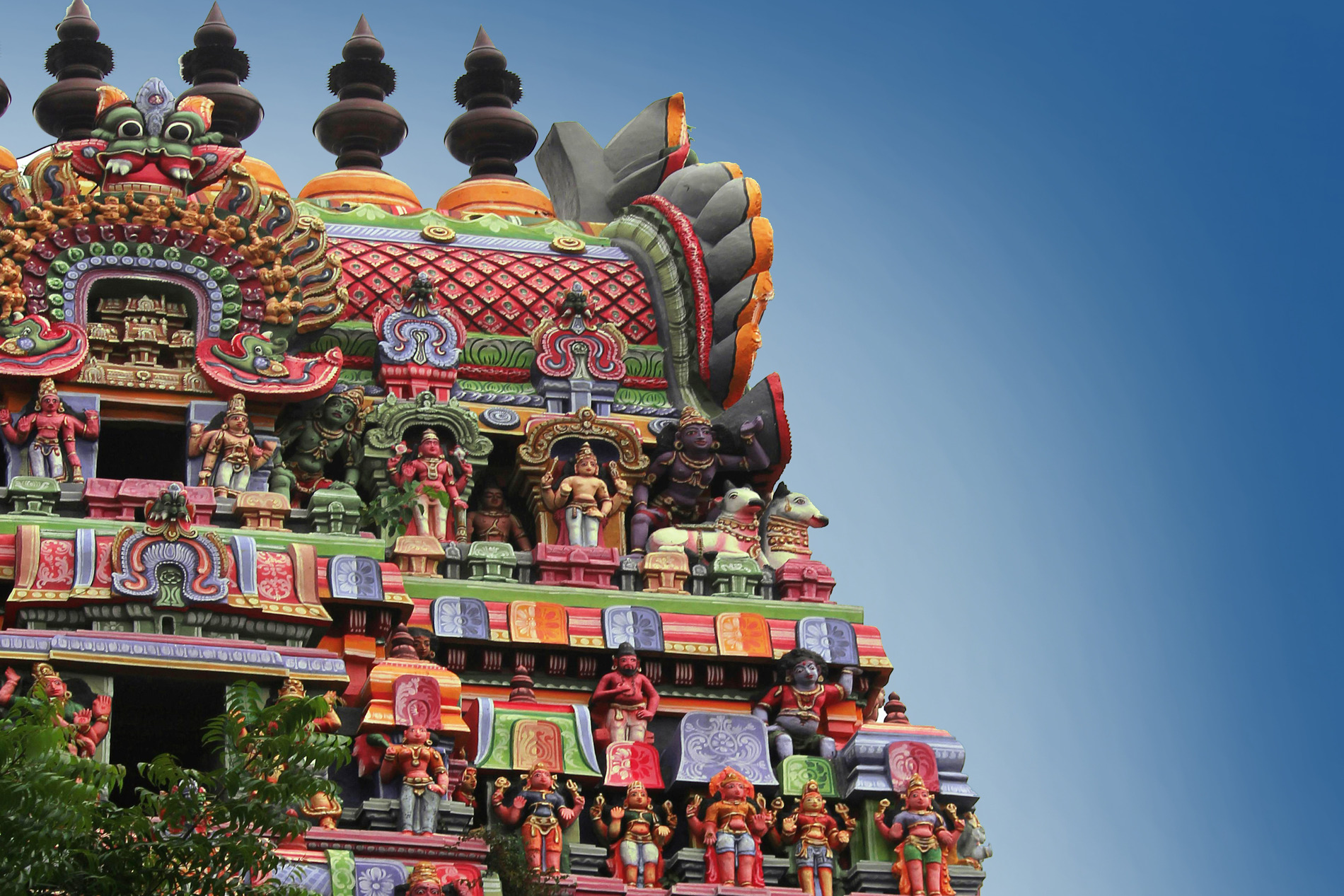
Madurai
Madurai weaves its myths and legends around a beloved goddess, the Devi Meenakshi Amman. For Madurai she is both the queen of the city and also their beloved mother or Amman, the benign mother goddess who listens patiently to their prayers and answers their worship. For thousands of years the temple dedicated to Meenakshi has been at the heart of the religious, social and economic life of the city. Madurai is first and always Devi Meenakshi Amman’s city.
As it has done from ancient times, even today the soaring gopurams of the Meenakshi Amman Temple dominate the skyline and the shrine is the centre of this busy and vibrant city. Poets have sung her praises, dancers performed at the threshold of her sanctum and singers sing of her with love and worship. Every day devotees gather by the thousands at the door of her sanctum with their offerings of flowers and line her streets during her festivals.
It is a princess and warrior goddess who sets the tone of life in Madurai. Many times every year its streets echo to the joyous celebrations of festivals. Among them the most popular is the gorgeous Chithirai Thirukalyanam festival that celebrates the marriage of the exquisitely beautiful and generous Meenakshi and her consort, the handsome Lord Sundareswarar.
Daiwik Hotels welcomes you to a city they called Madhurapura, as it is the land as sweet as honey and its world famous temple to a warrior goddess. They call her Meenakshi, the goddess with the beautiful fish shaped eyes.
The City
Madurai is the second largest city of the state of Tamil Nadu after Chennai. It is one of the oldest cities in India and its beginnings can be traced back to at least two thousand years. Madurai was flourishing as a centre of trade during the time of ancient Egypt and Greece and it is mentioned in the works of the Greek geographer Ptolemy and the historian Strabo. The Greek ambassador Megasthenes who visited the court of the Mauryan king Chandragupta in the 3rd century BCE mentioned it in his writings. He had heard of the city famous for its trade and culture while living in far off Pataliputra in the north.
Madurai was an international metropolis as it stood on the terminus of the Spice Route and was the centre of the world trade in pepper, silk, ivory and pearls. The trade took the Tamil merchants to the Far East and Europe and they came back with the finest perfumes, silver and Italian wines. Roman coins have been found in excavations around the city and it is said that an embassy from Madurai was received at the court of the Roman Emperor Nero.
Madurai was the capital of the kingdom of the Pandyan dynasty from the sixth to the fourteenth century CE. The city faced an invasion by the Muslim general Malik Kafur leading the army of Allaudin Khalji, the sultan of Delhi. The city was destroyed and the Meenakshi Amman temple was badly damaged. Then in the fourteenth century when the kingdom of Vijayanagar rose in the Karnataka region Madurai was reclaimed from the sultans, annexed and provincial governors called Nayakas were appointed to rule here.
When the Vijayanagar Empire declined in the sixteenth century, the Nayaka dynasty continued to rule the city. The finest architecture of the present city and much of the Meenakshi Temple are the creations of the rulers of Vijayanagar and later the Nayaka kings. Some of the finest architectural creations rose during the reign of King Tirumala Nayaka. Later in the 18th century when the English East India Company built the city of Madras nearby they also occupied Madurai and it remained in British hands till the independence of India.
With the patronage of its kings Madurai became a great cultural centre of literature, dance and music. Here, during Pandyan times, great literary conferences were held called Sangama and even today the Sangama literature especially its poetry is considered classics of Tamil literature.
A Sweet Place
Like all ancient places Madurai has a myth for every hill, river and temple. Legends say that the first city here was built in ancient times by a Pandyan king at a site where Lord Indra, the commander in chief of the army of the gods had worshipped Lord Shiva, the great god. The king could not think of an appropriate name for his new city till one night he dreamt of Shiva and the nectar that fell from Shiva’s hair when he danced. So he named the city as Madhurapura. Madhu means honey and so Madhurapura was a sweet place and gradually the name evolved into Madurai.
Legends are also connected to the landscape of the city. There are two hills in the outskirts of the city called Yanai Malai, the Elephant Hill and the Naga Malai, the Snake Hill and the Vaigai River flows by the city. At Yanai Malai Shiva turned an evil elephant into a rock when it tried to trample the Brahmins of Madurai. The Vaigai River is said to have been created by Shiva when he came to the city as Lord Sundareswarar to marry Meenakshi. It was created to quench the thirst of a guest, a dwarf who had eaten a mountain of rice at the wedding feast.
Shiva is also said to have played sixty four divine games at Madurai. These games called Thiruvilai Yadals were played on mortals and gods for his amusement. Many poems were composed about them by the Sangam poets. Madurai is also the setting of the famous Tamil classic novel called Silapaddikaram.
Madurai may have had many kings ruling it but the true royalty since time immemorial are Goddess Meenakshi and Lord Sundareswarar. They sit in their shrines in the heart of the city, resplendent in gold and jewels, worshipped with flowers, lighted lamps and incense and welcome you to an unforgettable spiritual experience.
Madurai, offers you a pilgrimage of a lifetime.
Find Your Perfect Read
Explore More
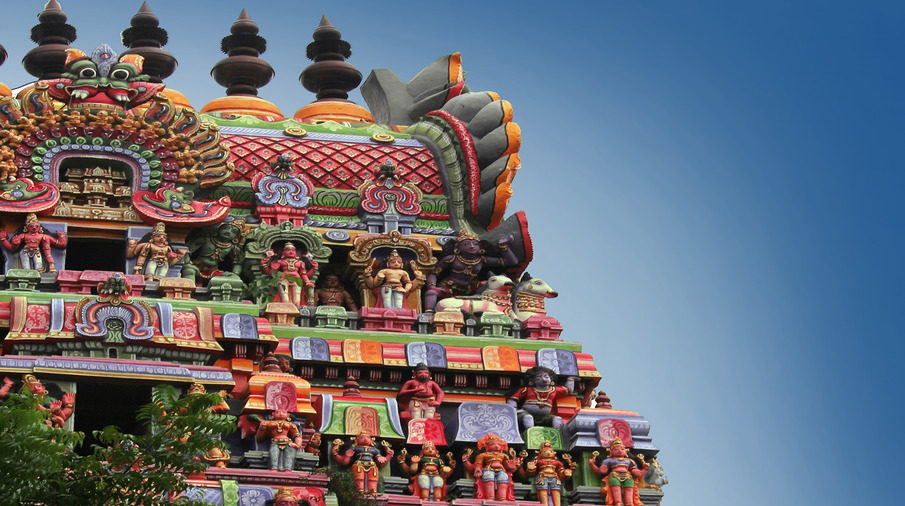
Madurai
Madurai weaves its myths and legends around a beloved goddess, the Devi Meenakshi Amman. For Madurai she is both the queen of the city and also their...
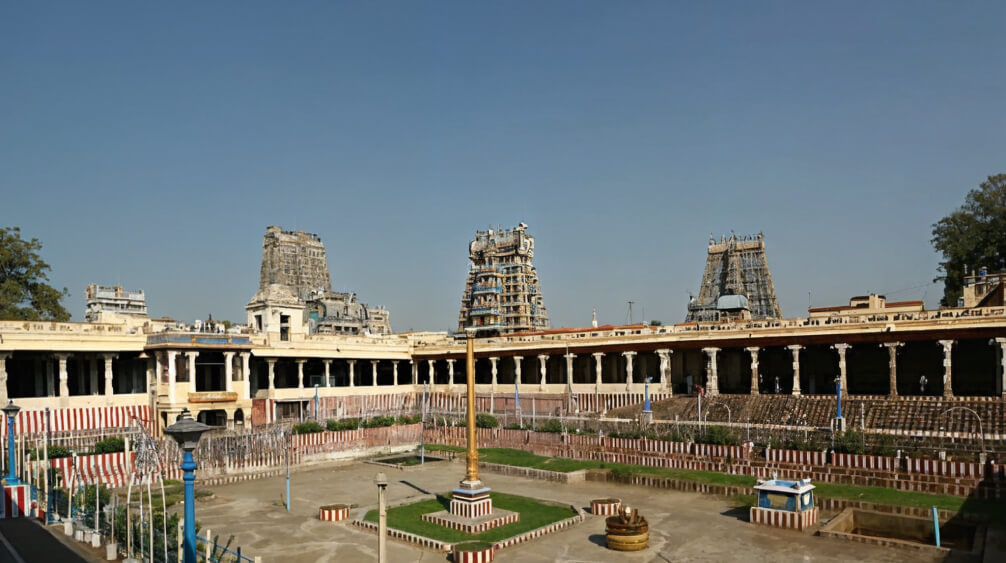
Meenakshi Sundareswarar
Even today the true heart of the city of Madurai is the great Meenakshi Amman Temple that is a celebration of the romance of the Princess...
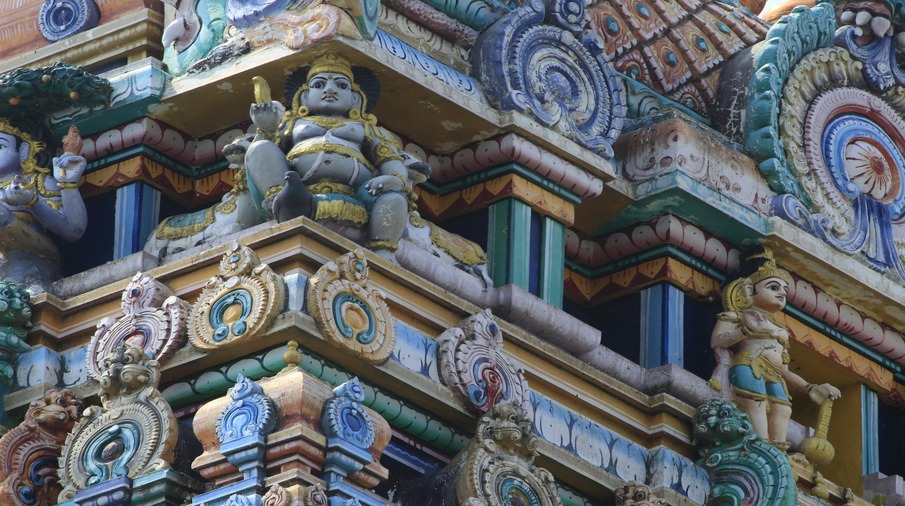
The Meenakshi Amman Temple
Meenakshi Amman of Madurai is by far the most popular goddess in the south. The tall gopuram gateways soaring towards...
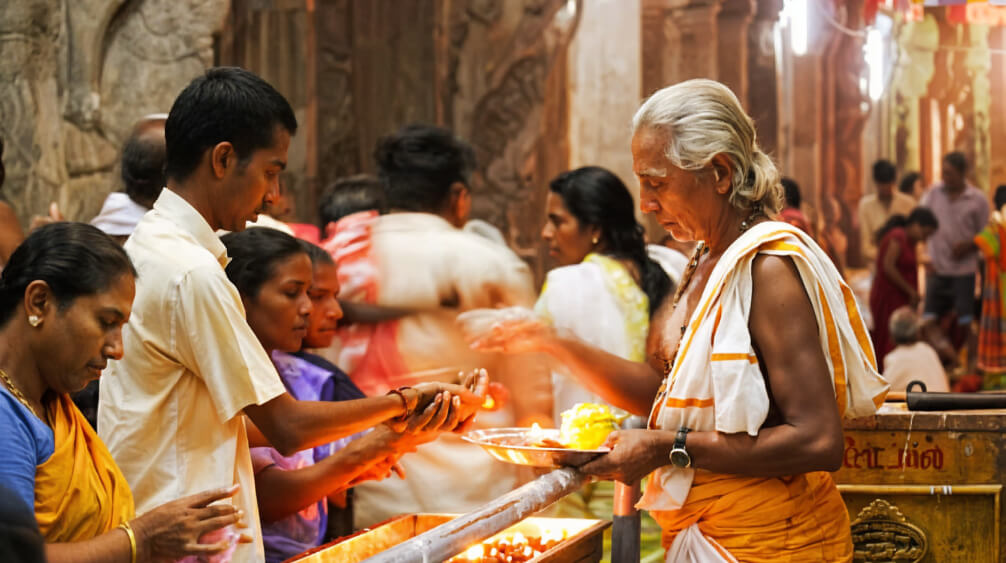
Pujas & Festivals
The puja or the rituals of worship are performed at the Meenakshi Amman Temple between 5:00 am to 12.30 pm and 4:00 pm to 10:00 pm. The temple is open...
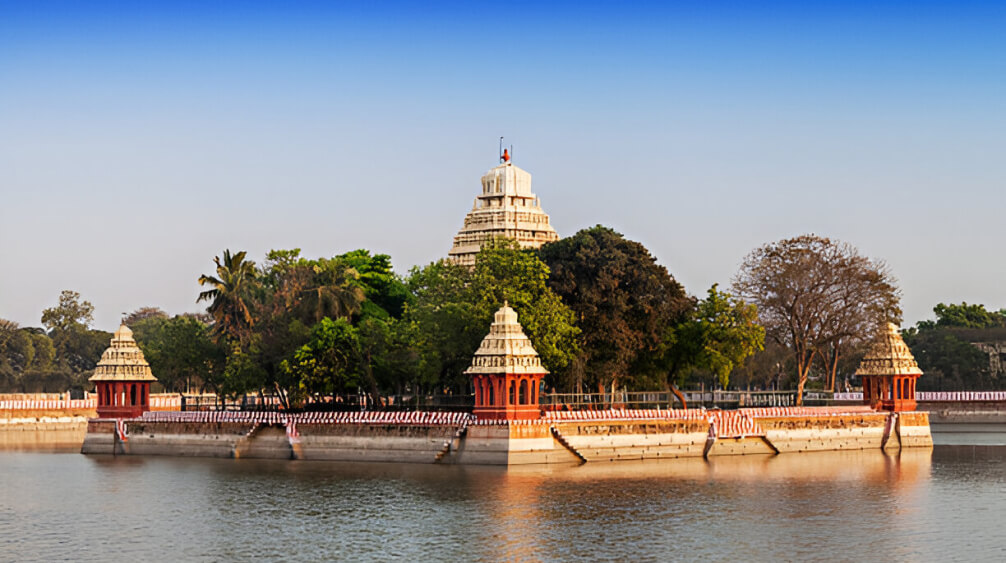
Other Places of Interest
There are a number of temples in Madurai that see pilgrims coming for worship. Also the city has a palace built by the Nayaka kings and a number of mosques, tombs and churches worth a visit...

